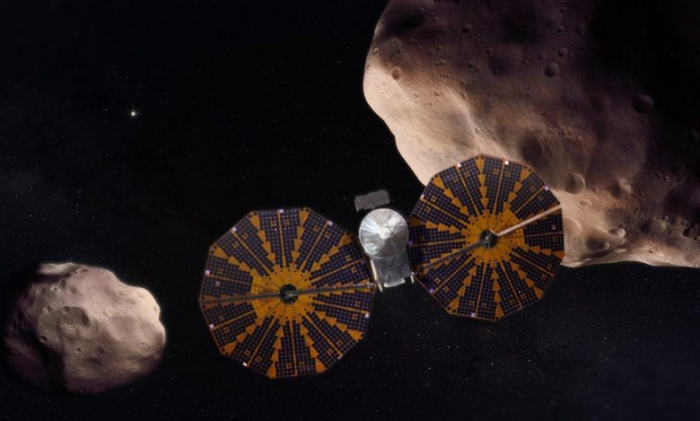The Atlas V rocket responsible for propelling the probe was scheduled to take off on Saturday at 5:34 am local time (9:34 am GMT) from Cape Canaveral.
Named after an ancient fossil of a pre-human ancestor, Lucy will become the first solar-powered spacecraft to venture so far from the Sun, and will observe more asteroids than any probe before it -- eight in all.
Additionally, Lucy will make three Earth flybys for gravity assists, making it the first spacecraft to return to our planet's vicinity from the outer solar system.
"Each one of those asteroids, each one of those pristine samples, provide a part of the story of the solar system, the story of us," Thomas Zurbuchen, associate administrator of NASA's Science Mission, told reporters on a call.
Lucy's first encounter will be in 2025 with asteroid Donaldjohanson in the Main Belt, between Mars and Jupiter. The body is named for the discoverer of the Lucy fossil.
Between 2027 and 2033, it will encounter seven Trojan asteroids -- five in the swarm that leads Jupiter, and two in the swarm that trails the gas giant.
The largest of them is about 60 miles (95 kilometers) in diameter.
Lucy will fly by its target objects within 250 miles (400 kilometers) of their surfaces, and use its onboard instruments and large antenna to investigate their geology, including composition, mass, density and volume.






































-1735029322.jpg&h=120&w=187&zc=1&q=70')









